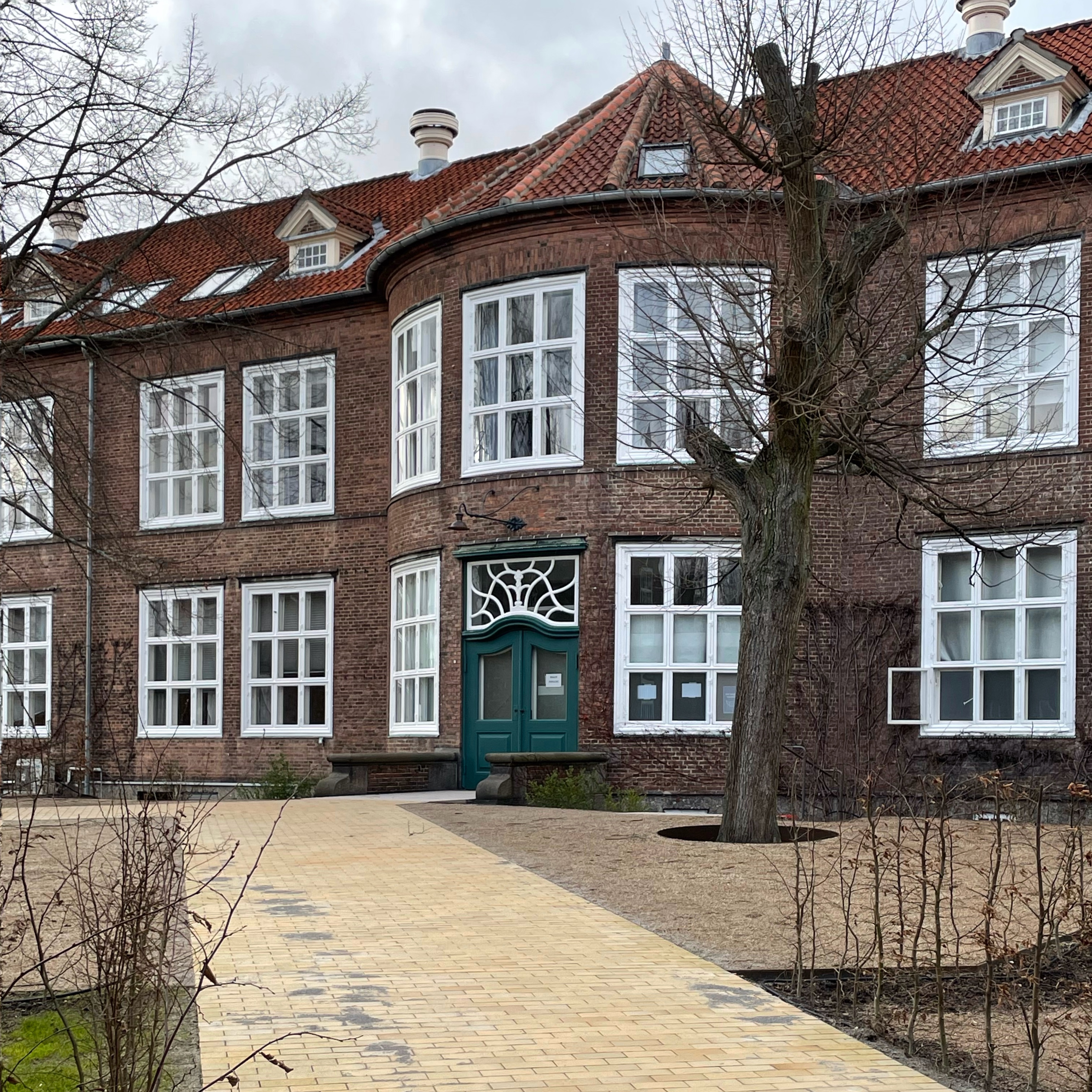
Thousands of stroke patients find it difficult to use the digital health system

At Bevica Fonden, we use advanced AI-based translation tools to make our Danish content accessible in English. However, some content – particularly academic articles and nuanced texts – require a level of linguistic accuracy and subject-specific precision that automated tools cannot yet guarantee.
This is why this article is available only in its original language (Danish). We have chosen not to offer an English version in order to preserve the integrity, clarity, and scholarly intent of the original work.
A stroke often causes problems with language, and this makes it difficult to be a digital patient. New project explores how we can silence them better.
Imagine you get hit by a blood clot or a bleed on the brain and survive. Life is one thing changed. Although you may think and be as before, many people have problems with language — either permanently or over a long period of time. You may have trouble finding words, finding the right sounds in words, choosing the right words, composing intelligible sentences, understanding language, spelling and writing, and more. Now imagine that you have to communicate with the digital health service... the thought alone is scary, right? In Denmark, approximately 12,000 people a year have a stroke (what we have previously called a stroke, that is, a blood clot or bleeding in the brain).About a third of them then get difficulty communicating due to language difficulties, also called aphasia. These are people like Sanne and Yago that you may have met in DR Series 'My Broken Brain'. Some have small difficulties, others experience great difficulties, and for the latter group, the encounter with a digital health service can be fraught with unintended barriers. We cannot allow them to be caught off.I am therefore researching how we can make public digital systems more easily accessible to people with aphasia. My hope is to reduce the inequality that arises when some can access and avail themselves of digital offers, while others cannot.
How to hit aphasia
Aphasia can last months, years, or a lifetime and have major consequences for one's life and relationships. For example, it is difficult to participate and participate in conversations if the language is gone. People with aphasia largely find that their relationships with friends, family and colleagues are affected. They are at greater risk of depression and failure to benefit from stroke rehabilitation if the aphasia is prolonged. If you have aphasia, you are also at risk of being left out of decisions about your own treatment and future, both during and after hospitalization. It can be difficult to say if you cannot say words that are understandable, and it can be difficult to answer pertinently if language comprehension in the brain is affected. However, people with aphasia have the right — just as before the onset of their language difficulties — to be involved and to be properly communicated with. With aphasia, you have lost the opportunity to demonstrate, to the same extent as before, that you are a competent, independent individual. Intellectually, as mentioned, people with aphasia function most often the same as before the aphasia and have not necessarily lost the ability to participate and make decisions inside behind the language difficulty. But they may need customized support.
People with aphasia are lost in digitalization
If you have problems with the language in conversation, there is a risk that you will also experience problems in the meeting with the digital health service — a digitalization, the government, the regions and municipalities will have to fill even more. Therefore, we need to think about how and when we use digital systems to treat or contact vulnerable patients, such as those with aphasia. It is in line with principles of universal design. These principles recognize that all people are different, but that it is important that we adapt and develop products, systems and more so that they can accommodate these differences. For people with aphasia, this means, among other things, that we must arrange the health care system so that they are not deprived of their autonomy and right to be involved in their own treatment simply because they have language challenges. With universal design as a lever, we can become aware of developing specific solutions that recognise the needs of these people — thereby ensuring equal and dignified treatment in the healthcare system. The aim of my research is therefore to ensure increased accessibility by designing a digital infrastructure in healthcare that addresses their needs.
Digital questionnaire with aphasia friendly tools
When some can avail themselves of digital offers while others cannot, we have inequality. So what can we do concretely to increase accessibility for people with aphasia? I and others are researching and testing whether we can make digital systems more easily accessible to people with aphasia. That is, What my PhD project is about. The project is a collaboration between the Health Data Agency's PRO secretariat, Rigshospitalet and the University Hospital of Zealand. Digitalisation in healthcare involves, among other things, sending questionnaires to patients in connection with treatment or prior to consultations and operations. The forms bear the abbreviation PRO (Patient Reported Information Questionnaires). Pro schedules allow patients to tell how they are feeling directly to staff at the hospital and must ensure quality of care. This information can be used directly in treatment, for quality development or in consultations as dialogue support. We have already developed such a digital PRO questionnaire for stroke patients, which we have tried to adapt with aphasia friendly means (I will return to what it consists of). We are currently testing it and later we will evaluate.
Less complexity and now with images
Our PRO questionnaire is a tool for dialogue that is used before a follow-up interview in a stroke outpatient clinic. That is, patients receive it after discharge, but before follow-up. Our table contains questions about some of the aspects and consequences of a stroke that can only become really visible to the patient and relatives after returning home from the hospital. For example, these can be hidden cognitive difficulties (such as memory problems) or relational difficulties due to aphasia. Our questionnaire prepares the patient for the conversation and provides an opportunity to communicate difficulties that otherwise might not have come to light. Difficulties that patients without aphasia would be able to tell about and perhaps get help for. The aphasy-friendly tools that we have adapted and incorporated into the digital questionnaire come from national and international research literature. For example, we have adapted the language so that the questions are not too complex, without becoming too simple. We have also added images to each question to support understanding of the questions, as well as added a scale in color with numbers and word support to support answering. In addition, we have adapted the layout so that there are no distracting elements on the page — for example, there is only one question per page.
Does the questionnaire work?
In our pilot testing, we can see that people with aphasia can use our customized scheme with easy support along the way. What about the barriers one may experience before reaching the customized questionnaire? If you have aphasia, you may also have problems using your phone, computer, citizen.dk, MiTiD and so on. Many will need help from relatives or others to log in to their online bank or health.dk. The aspects and issues related to access will also need to be investigated and addressed if, for example, digital PRO questionnaires for people with aphasia are to be implemented. And we will have to investigate and think carefully about, in what situations it makes sense to use them? We don't (yet) know that. Therefore, we do not know whether the questionnaire will be of real help. Digitalisation has been happening at a rapid pace and we are dealing with a relatively small and vulnerable group of people. We can and must become much more aware of the barriers people with aphasia experience in terms of access to the use of digital systems, including digital PRO questionnaires. We hope that our study can help. In addition, we will also test whether our customized Pro scheme is actually useful. How does aphasic adaptation affect availability and usage? Does it support people with aphasia to participate in their own treatment, and do we reduce potential inequality? If so, can we use the knowledge from our project to help people with dementia or other forms of brain injury in line with the principles of universal design? These are questions we will hopefully get smarter about in the near future.
Results are expected to be ready by spring 2024. If you want more about Frederik Gybel Jensen's PhD project, there is a project description here (in English). He is also co-author on the chapter 'Towards digital accessibility: disability culture and social justice'in the anthology 'Universal Design Interdisciplinary Perspectives in Theory and Practice'. The anthology and chapter (p. 73 onward) are available free of charge hereto.
Find the full article on Vidence.dk here: Thousands of stroke patients find it difficult to use the digital health system
Frederik Gybel Jensen is a member of Bevica Fondens researcher network
Read Frederiks researcher profile here
More knowledge about Universal Design
Explore the Bevica Foundation's Knowledge Library
Latest News
Follow the latest news from the Bevica Foundation below.





